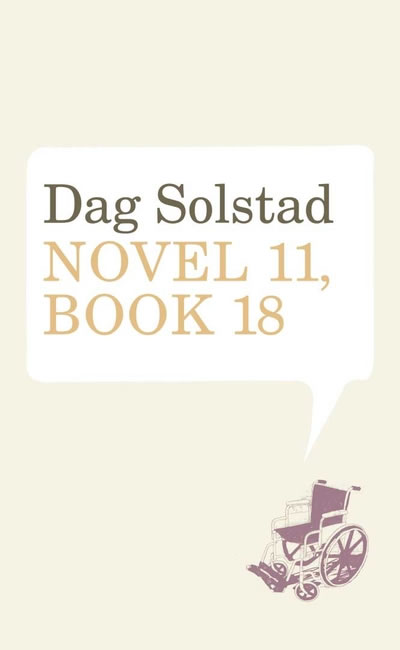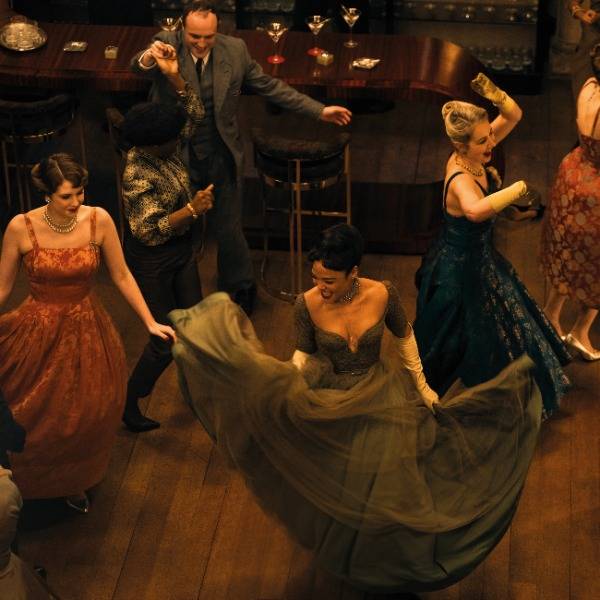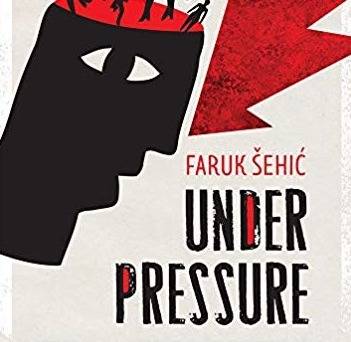 “What bothers me is that my life is so unimportant,” says Bjørn Hansen, the world-weary hero of this Norwegian existential novel which manages to be at once bleak and shot through with shafts of light. Dag Solstad has won every conceivable literary prize in his native land, and reading this (his second to be translated into English) one can see why: he is a master of irony, of pinpointing the little moments in life which trigger catastrophe; his characters, solid and believable, drift through a cold, hostile world, each unbearably unable to communicate with the other on almost any level. And yet his genius is that there are moments of laughter, and even of joy; Hansen’s ultimate nihilistic action has its comedy too.
“What bothers me is that my life is so unimportant,” says Bjørn Hansen, the world-weary hero of this Norwegian existential novel which manages to be at once bleak and shot through with shafts of light. Dag Solstad has won every conceivable literary prize in his native land, and reading this (his second to be translated into English) one can see why: he is a master of irony, of pinpointing the little moments in life which trigger catastrophe; his characters, solid and believable, drift through a cold, hostile world, each unbearably unable to communicate with the other on almost any level. And yet his genius is that there are moments of laughter, and even of joy; Hansen’s ultimate nihilistic action has its comedy too.
The novel’s downward arc is forceful, gelid, unstoppable; sentences pile on top of each other, flowing and foaming with a seemingly random yet fatally purposeful aim. In this Solstad mirrors successfully both the strange patterns of life itself and the human thought process: how we attempt to impose our own sorts of order upon things.
Solstad’s vehicle for exploring existence, Hansen, considers himself a “slow, introvert and not very spontaneous person”. To the outside world, Hansen appears to lead a life full of variety: he abandons his wife and child in Oslo to go to live with a woman, Turid Lammer (at this point she is “the meaning of life” for him), with whom he throws himself into the daily round of the provincial life of Konsgberg. Yet the very distractions with which they attempt to leaven the tedium prove to be the agent of Hansen’s crisis: Lammer is an amateur theatrical producer who loves to put on light opera and comedies which are the success and delight of the town; when Hansen tries to put on an Ibsen play, which flops, it throws him off course, sending him to live on his own in a dull flat, feeding on his Weltschmerz. “Bjørn Hansen was going on forty, and he screamed for something more.” Lammer is trapped inside her own defences; only Hansen can see the truth.
“Existence has never answered my questions,” he bemoans. And Solstad delineates, agonisingly and poignantly, his descent into a place “whereby Bjørn Hansen would actualise his No . . . he would plunge into something from which there was no possibility of retreat.” The sinister drug-addict Doctor Sciøtz becomes a confidant with whom he plots his descent; the plan is momentarily derailed by the arrival of Hansen’s son, Peter.
The novel’s success depends also upon Peter. At first it appears that Hansen will be ameliorated: his son is studying optometry at the local college, and wants to stay with his father. But it soon becomes apparent that Peter neither cares about him nor has any interest in his own studies. Solstad’s portrait of Peter is so acute that it is almost painful to read; there are no Pinteresque power-plays between the two men, just a desolate, empty space.
The novel finishes with a quiet note of redemption, as if Hansen has achieved something of worth. Solstad suceeds brilliantly in capturing the awkward, fluid motions of our puzzling lives. We should look forward to more translations.
Novel 11, Book 18 is published by Harvill Secker

